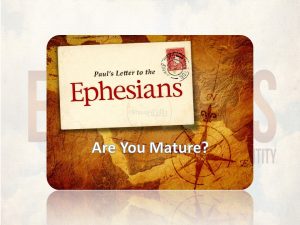
Unexpected things happen all the time and how we respond sometimes has significant implications. This past Thursday, I received a call from Lynn and the first words out of her mouth were not the words a pastor or any leader likes to hear, “Athol, we have a huge problem…”
Usually when I hear those words, I downplay them and try to minimize my stress response. But something about her tone of voice, indicated that this really was a “huge problem”.
I was on my way down the hill from the church, and I rushed back as quickly as my 2008 Kia could get me up the hill. On my arrival I was greeted by many anxious faces and saw water all down the hallway and flooding into the sanctuary. I headed to the back of the church and found that the backflow valve was expelling as much water as a four-inch line would allow.
I was able to shut it off and then the process of cleanup and calling companies to help began. As usual, Nicole was on top of it and had people there to begin the cleanup within the hour.
It is going to take a few days until we can get the water on, and unfortunately as a result we were unable to hold services today. But in spite of all the drama, God is still in control. We see a setback, but God is following His eternal and perfect plan.
We decided not to use Zoom, or stream a service this morning, but rather we encouraged everyone to spend time alone or in your families with the Word of God, allowing God to speak to you.
Last week, as I was preaching through Ephesians 4:13-16, I spoke on the four attributes of spiritual maturity. The second one was, “spiritual maturity involves doctrinal stability”.
That sounds very much like, “seminary speak”, but the bottom line is that we need to feed on God’s word for ourselves in order to mature. And as we mature we will be able to discern between false doctrine and the truth found in God’s word.
So, on this day, you and I have the wonderful opportunity to feed on the glorious riches of the Word. Allowing the author, the Holy Spirit to give us a feast.
This morning I was reading Deuteronomy 30. Moses is giving his final instructions of the Law of God to the children of Israel. Moses was encouraging them to choose life, to choose to worship God alone and not to be distracted by the false gods and idols of the nations around them.
In Deuteronomy 30:11-15 we read, “For this commandment that I command you today is not too hard for you, neither is it far off.It is not in heaven, that you should say, ‘Who will ascend to heaven for us and bring it to us, that we may hear it and do it?’ Neither is it beyond the sea, that you should say, ‘Who will go over the sea for us and bring it to us, that we may hear it and do it?’But the word is very near you. It is in your mouth and in your heart, so that you can do it. See, I have set before you today life and good, death and evil.”
Notice the emphasis I underlined. If the truth of God’s word was close during the time of Moses, how much more for us under the New Covenant. We have the blessing of the 3rd person of the Trinity, living in us as true followers of Jesus.
Jesus prepared his disciples for the coming of the Holy Spirit and in John 14:26-27 we read, “But the Helper, the Holy Spirit, whom the Father will send in My name, He will teach you all things, and bring to your remembrance all that I said to you. 27 Peace I leave with you; My peace I give to you; not as the world gives do I give to you. Do not let your heart be troubled, nor let it be fearful.”
In June of 2020, we certainly have a lot going on in the world around us. It would be easy for us to be so consumed by the events of the world that we become fearful and lacking peace.
Whether it be a sudden flood in a building, the Corona virus, political chaos or an earthquake in Mexico, our God is still the one who gives us peace. Our Heavenly Father does not react to the events of the world, rather, He is perfectly orchestrating all of the worlds events in preparation for His son, Jesus, to come again in glory.
In this season, if you are not spending time in God’s word, allowing the Holy Spirit to bring you peace and comfort, you will be easily swayed. Let us be a people who discern the season through the lens of God’s word.
Who are you listening to?



